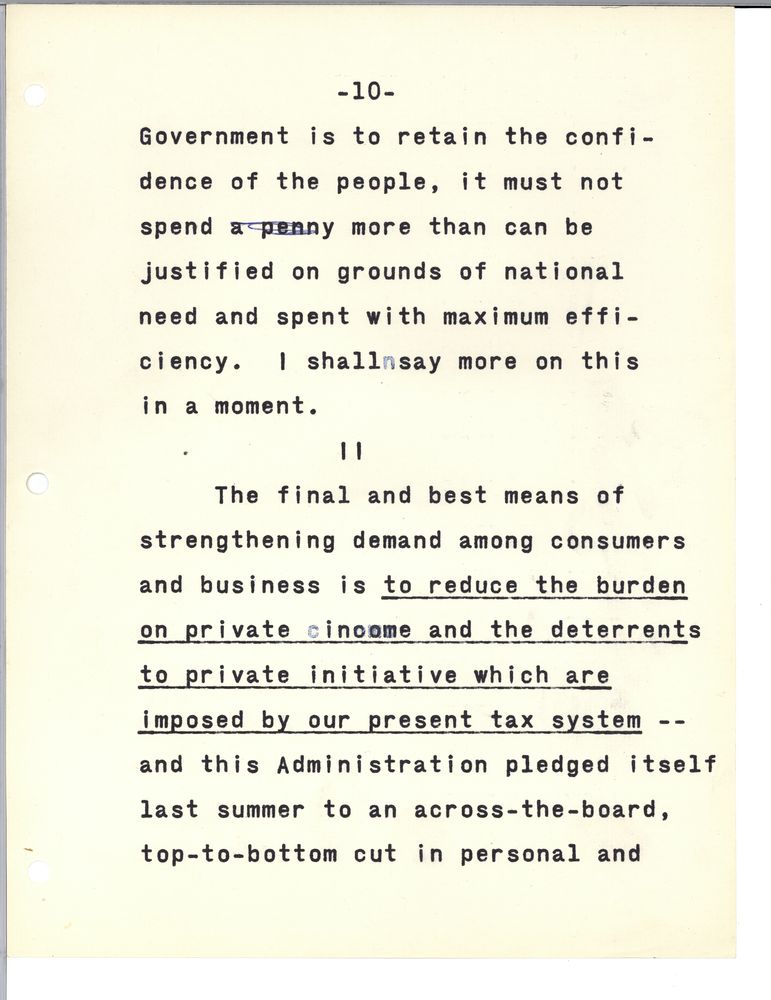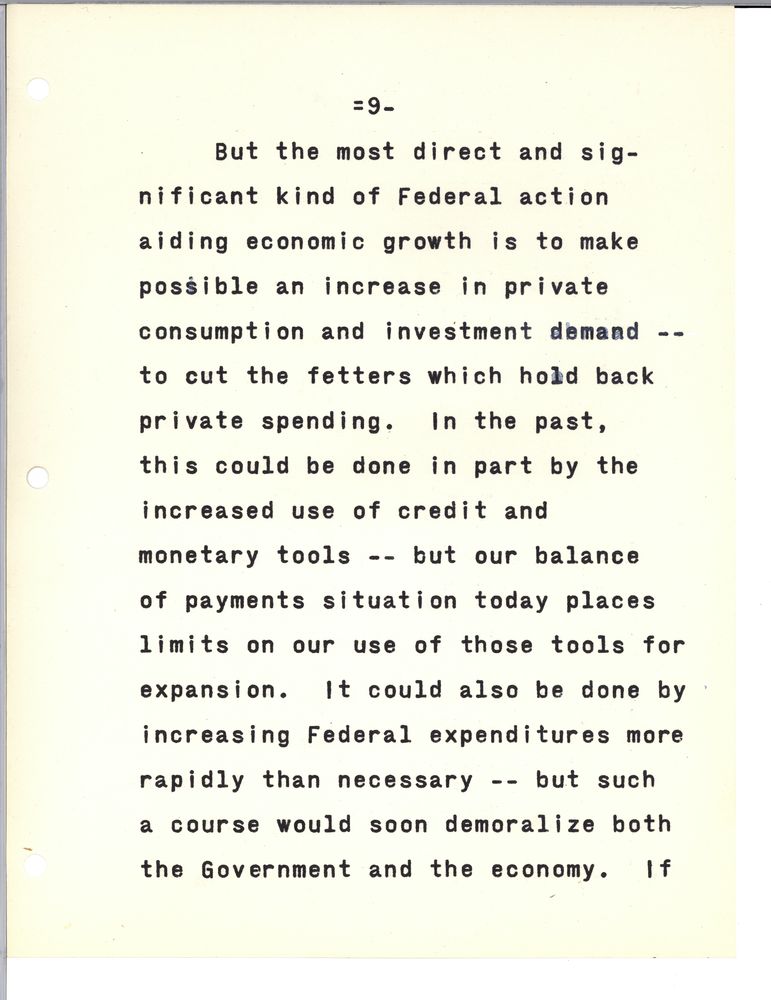

But the most direct and significant kind of federal action aiding economic growth is to make possible an increase in private consumption and investment demand -- to cut the fetters which hold back private spending. In the past, this could be done in part by the increased use of credit and monetary tools, but our balance of payments situation today places limits on our use of those tools for expansion. It could also be done by increasing federal expenditures more rapidly than necessary, but such a course would soon demoralize both the government and our economy. If government is to retain the confidence of the people, it must not spend more than can be justified on grounds of national need or spent with maximum efficiency. And I shall say more on this in a moment.
The final and best means of strengthening demand among consumers and business is to reduce the burden on private income and the deterrents to private initiative which are imposed by our present tax system -- and this administration pledged itself last summer to an across-the-board, top-to-bottom cut in personal and corporate income taxes to be enacted and become effective in 1963.
I'm not talking about a "quickie" or a temporary tax cut, which would be more appropriate if a recession were imminent. Nor am I talking about giving the economy a mere shot in the arm, to ease some temporary complaint. I am talking about the accumulated evidence of the last five years that our present tax system, developed as it was, in good part, during World War II to restrain growth, exerts too heavy a drag on growth in peace time; that it siphons out of the private economy too large a share of personal and business purchasing power; that it reduces the financial incenitives [sic] for personal effort, investment, and risk-taking. In short, to increase demand and lift the economy, the federal government's most useful role is not to rush into a program of excessive increases in public expenditures, but to expand the incentives and opportunities for private expenditures.
source: American Rhetoric: John F. Kennedy - Address to the Economic Club of New York
